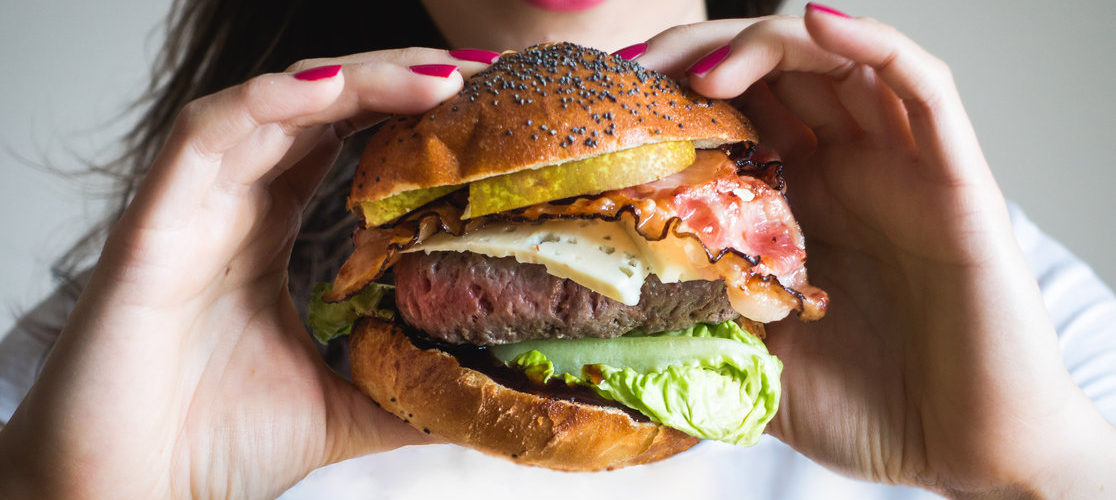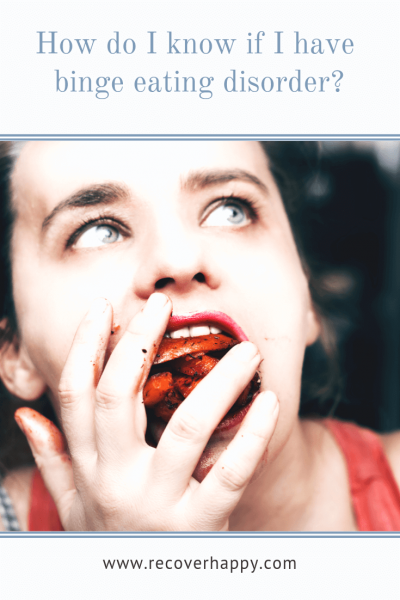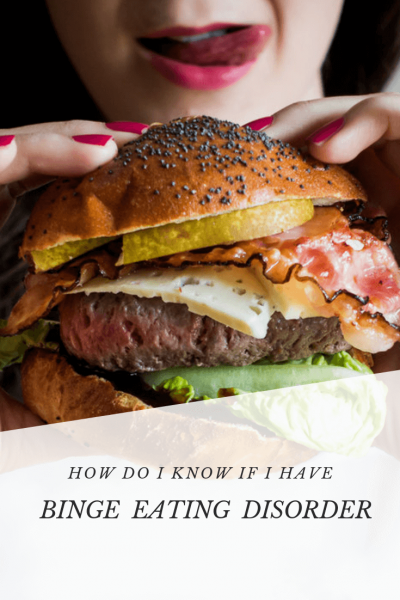How do I know if I have binge eating disorder?

By Tanja _ October 7, 2019
You have probably heard of binge eating before. But you might not know what binge eating disorder involves and what its symptoms are.
Binge eating disorder involves the urge to eat a large amount of food (usually sweets and non-nutritious food) in a relatively short period of time, combined with the feeling of being powerless to stop this urge. However, unlike Bulimia, binge eating disorder doesn’t generally involve actions to compensate for this afterwards, such as throwing up or exercising excessively.
For a short time, it might feel as though binge eating helps you to relieve stress, depression, anxiety or other unpleasant emotions. But the hard truth is that reality quickly catches up and you are overwhelmed by feelings of self-loathing, disgust and regret. You might try to regain control by restricting your food intake. Unfortunately, this often leads to another episode of binge eating.
The worse you feel about the situation, yourself and the way you look, the more you might use eating to deal with it. Sooner or later you might find yourself trapped in a vicious cycle of eating to feel better, feeling bad afterwards and turning back to food for relief.
Contrary to common belief, being overweight is not directly associated with this disorder. In fact, you can suffer from binge eating disorder even if your weight is average or below average. Further, most obese people don’t have binge eating disorder, but obesity can be one of the long-term effects of binge eating.
Perhaps surprisingly, binge eating has not always been a diagnosable eating disorder. In fact, it is one of the newest eating disorders listed in the Diagnostic and Statistical Manual of Diagnostic and Statistical Manual of Mental Disorders (DSM-5) which was released by the American Psychiatry Association in 2013.
I would like to share with you the main behavioural, emotional and physiological symptoms of binge eating disorder, to help you to identify if you are affected by it with it or are more likely to develop it.
Behavioural symptoms of binge eating disorder
- You have developed secret behaviours in relation to food, such as hoarding food to eat it later in secret or hiding empty food containers after a binge eating episode.
- You have noticed an increase in your food shopping bill, as you buy more and more food.
- You are eating a larger amount of food than previously, in the same period of time.
- You eat even though you are not hungry.
- You can’t stop eating once you have started.
- You keep eating until you feel uncomfortably full.
- You try to eat in moderation around others, but once you are alone you gorge.
- You avoid eating in front of others and might even start to isolate yourself socially.
- You have planned your whole life around your binge eating episodes.
Emotional symptoms of binge eating disorder
- You feel ashamed, guilty, depressed and disgusted by yourself over how much you have eaten and your lack of self-control.
- You feel stress and fear, which stops only when you eat. However, no matter how much you eat, you never feel satisfied.
- You feel as if you are on auto-pilot while you binge eat, as though someone else is controlling you.
- You feel more sensitive towards comments about your weight, body shape, eating habits and fitness routines.
- You experience low self-esteem and low confidence.
Physical symptoms of binge eating disorder
- You experience poor skin conditions such as dry skin, acne or brittle hair, due to a lack of nutrient consumption. This is a risk particularly if you binge eat sweets, fast food and dairy products.
- You experience rapid weight gain due to your consumption of large amounts of calorific food.
- You feel tired and lethargic, as your body devotes more energy to digesting all the additional sugar, fats and carbohydrates you have consumed.
- You feel uncomfortably full and experience bloating, abdominal pain, diarrhoea and heartburn.
It is entirely possible to overcome binge eating disorder – others have done it and so can you!



